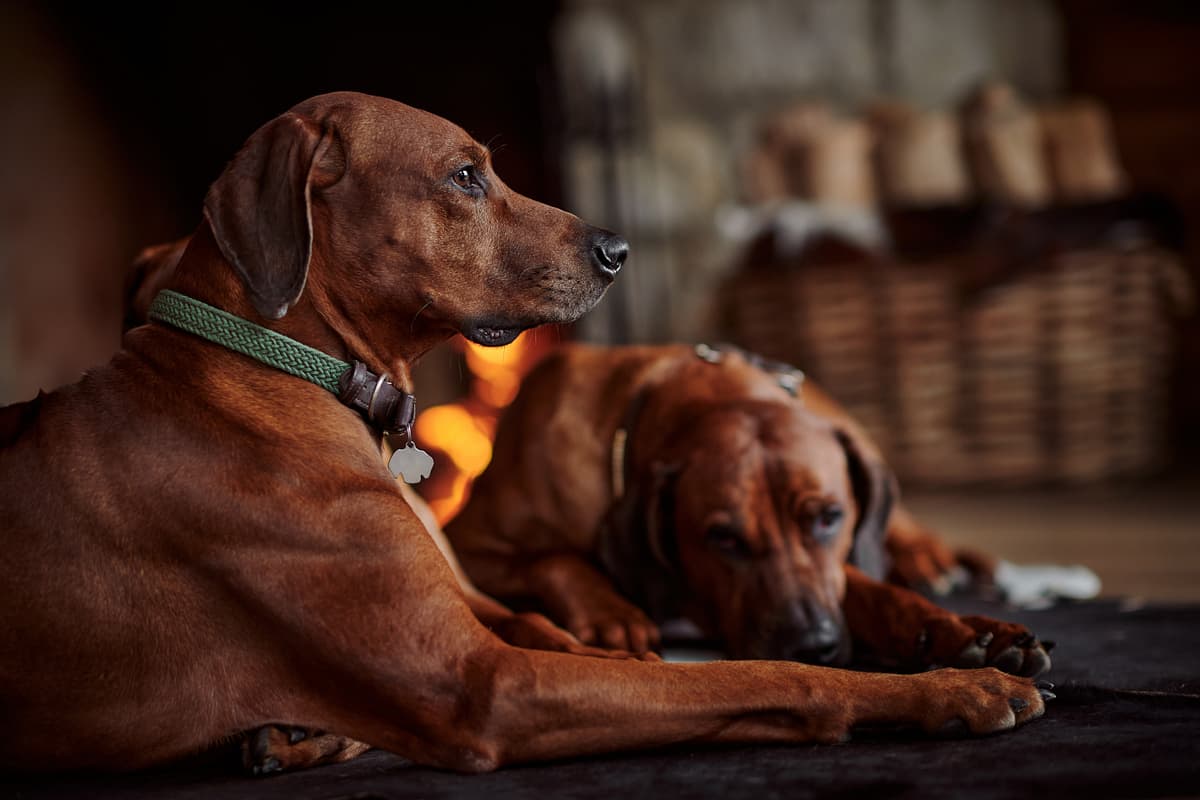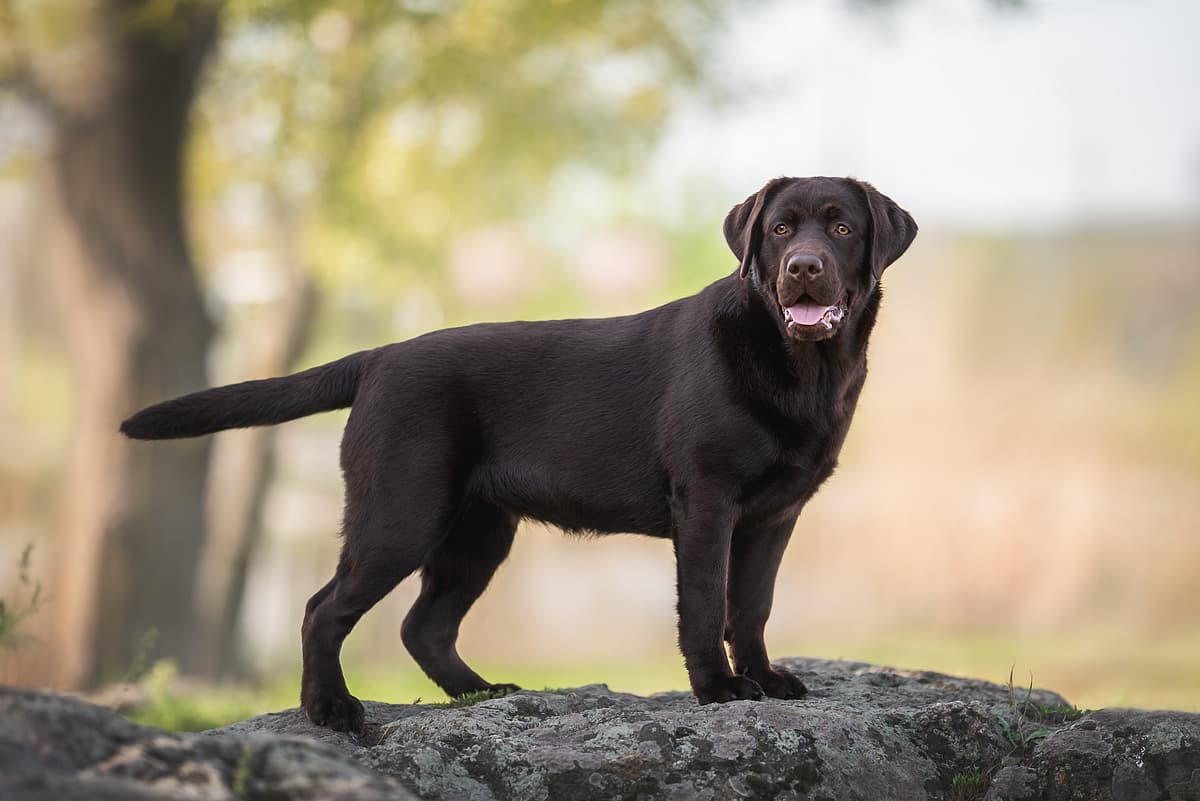Rhodesian Ridgeback vs Labrador Retriever
Discover the differences between Rhodesian Ridgeback and Labrador Retriever to make the best choice for your situation.
Try different breeds

Rhodesian Ridgeback
Athletic and dignified, this breed is known for a loyal spirit and striking ridge of hair along the back. Confident yet gentle, makes a devoted family companion.

Labrador Retriever
Eager, friendly, and intelligent, this breed loves being part of an active family. Their gentle nature and loyalty make them outstanding companions for all ages.
Quick comparison
Large
36–41 kg
Short, dense
10–12 years
29–34 kg
High energy
Large
29–36 kg
Short double coat, water-resistant
10–12 years
25–32 kg
High energy
Personality & behavior
Compare the personality traits and behavioral characteristics of both breeds.
Rhodesian Ridgeback
Wary with strangers, affectionate with known people
Quick learner, responds well to training
Needs regular physical activity and stimulation
Enjoys play but not overly boisterous
Adjusts somewhat to new environments and routines
Labrador Retriever
Warm and sociable with people and animals
Quick learner, responds well to training
High stamina, enjoys active pursuits daily
Loves games and interactive activities
Adjusts easily to new situations and environments
Care needs
Exercise, grooming, and daily care requirements
Rhodesian Ridgeback
Hip dysplasia, elbow dysplasia
Labrador Retriever
Hip dysplasia, elbow dysplasia
Suitability
How well each breed fits different living situations and families
Rhodesian Ridgeback
Challenging for beginners
Needs experienced handling and firm training guidance
Not recommended
Needs space, dislikes confined environments, and can be noisy in small spaces
Excellent match
Thrives with daily vigorous exercise and active lifestyles
Needs supervision
Generally gentle but may be too boisterous for small children
Sometimes compatible
May show dominance, especially with other dogs of the same sex
Poor fit
Dislikes solitude and may develop behavioral problems when left alone for long periods
Labrador Retriever
Great choice
Patient and eager to please, Labradors are manageable for most first-time owners.
Not ideal
Labradors need space and exercise, so apartments can limit their activity needs.
Perfect fit
High energy and stamina make them excellent for active individuals or families.
Highly suitable
Gentle temperament and playful nature make them safe and loving with young children.
Very friendly
Generally sociable and get along well with other dogs and pets.
Prone to anxiety
Extended alone time can lead to boredom and destructive behaviors in this breed.
Breed strengths
What each breed excels at and their best qualities
Rhodesian Ridgeback
- Loyal family companion
- Athletic and agile runner
- Low grooming maintenance required
- Good endurance for outdoor activities
- Generally healthy with few genetic issues
Labrador Retriever
- Friendly and sociable with people and dogs
- Highly trainable and eager to please
- Excellent with children and families
- Strong retrieving and swimming abilities
- Generally adaptable to various living situations
Challenges & considerations
Potential challenges and considerations for each breed
Rhodesian Ridgeback
- Strong prey drive may chase small animals
- Needs consistent training and boundaries
- Can be aloof with strangers
- Prone to boredom without mental stimulation
- Requires ample daily exercise
Labrador Retriever
- Prone to obesity without portion control
- Can become destructive if under-exercised
- Heavy seasonal shedding requires regular grooming
- May develop hip or elbow dysplasia
- Needs significant daily physical activity
Ready to choose your perfect breed?
Learn more about each breed or compare other breeds to find the perfect match for your lifestyle.
Discover more helpful tools
Make use of our other free tools to get the most out of your pet experience
